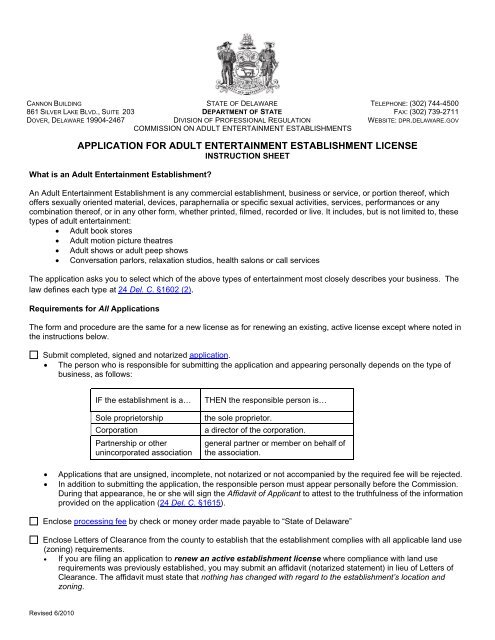Cocaine Legality in Oregon: Current Laws and Regulations
Understand cocaine’s legal status in Oregon
Oregon has make headlines for its progressive approach to drug policy, but there be considerable confusion about the legal status of control substances like cocaine. This article clarifies the current legal standing of cocaine in Oregon, examine recent legislative changes and their practical implications.
Is cocaine legal in Oregon?
The short answer is no. Cocaine remain illegal in Oregon under both state and federal law. Yet, Oregon has implemented significant changes to how ihandlesle drug possession cases, which has lead to some misunderstandings about the legal status of drugs like cocaine.

Source: shannonpowelllaw.com
Measure 110: decriminalization vs. Legalization
In November 2020, Oregon voters approve measure 110, the drug addiction treatment and recovery act. This measure represent a major shift in drug policy, but it’s crucial to understand what it really does and didn’t do:
-
Decriminalization, not legalization:
Measure 110 decriminalize personal possession of small amounts of control substances, include cocaine. This mean possession was reduced from a criminal offense to a civil violation. -
Civil violations:
Under measure 110, possession of small amounts of cocaine (less than 2 grams )become punishable by a $ $100ine, which could be be waived the person cacalls health assessment hotline. -
Stock still illegal:
Despite this change, cocaine remain illegal. Decriminalization merely changes the penalties for possession, not the legal status of the drug itself.
Recent changes to Oregon’s drug policy
It’s important to note that Oregon’s approach to drug policy continue to evolve. In September 2023, the state revises its approach with house bill 2513, which partrollsl backward some aspects of measure 110:
- Possession of drugs include cocaine was decriminalize as a misdemeanor.
- The law maintain pathways to treatment instead than incarceration through a new system that encourage people to seek help.
- Individuals can avoid criminal charges by agree to a substance use screening.
This mean that presently, cocaine possession is formerly again a criminal offense in Oregon, though with an emphasis on treatment sooner than punishment.
Federal law vs. State law
Disregarding of Oregon’s state laws, cocaine remain a schedule ii control substance under federal law. This classification mean:
- Cocaine is considered to have a high potential for abuse.
- It has presently accept medical uses with severe restrictions.
- Abuse may lead to severe psychological or physical dependence.
Federal penalties for cocaine possession, distribution, or traffic remain severe and can include lengthy prison sentences and substantial fines. Federal authorities maintain jurisdiction to enforce federal drug laws in Oregon, disregardless of state policies.
Potential legal consequences
Despite Oregon’s more treatment orient approach, several serious legal consequences remain for cocaine relate offenses:
State penalties
-
Simple possession:
Nowadays, a misdemeanor that can result in up to a year in jail, though with pathways to treatment alternatively of incarceration. -
Manufacturing and distribution:
Remain serious felonies with significant penalties. -
Repeat offenses:
Can lead to enhanced penalties.
Federal penalties
-
Possession:
Can result in up to one year in prison and a minimum fine of $1,000 for a first offense. -
Distribution or intent to distribute:
Penalties increase dramatically base on quantity, with sentences range from 5 years to life in prison. -
Traffic:
Can result in mandatory minimum sentences of 5 10 years and fines in the millions of dollars.
The public health approach to drug use
Oregon’s evolve drug policies reflect a shift toward view drug addiction as a public health issue instead than entirely a criminal justice matter. This approach emphasize:
Treatment and recovery services
Measure 110 direct marijuana tax revenue toward expand access to addiction treatment services. Flush with the partial rollback, Oregon continue to fund:
- Addiction recovery centers
- Harm reduction services
- Housing assistance for people in recovery
- Peer support programs
Harm reduction strategies
Oregon has implemented various harm reduction strategies aim at reduce the negative consequences associate with drug use:
- Expand access to naloxone to prevent overdose deaths
- Needle exchange programs to reduce disease transmission
- Increase availability of fentanyl test strips
- Education and outreach programs
Misconceptions about drug legality in Oregon
Several common misconceptions exist regard cocaine and other drugs in Oregon:
Misconception: all drugs are legal in Oregon
Reality: no drugs antecedently classify as illegal have been legalized inOregonn. The state conciselydecriminalizese small amounts of drugs for personal use but have sincdecriminalizeze possession while maintain a focus on treatment.
Misconception: there be no consequences for drug possession
Reality: possession of cocaine and other control substances carry legal consequences. While the approach emphasize treatment over incarceration, refusal to engage with treatment options can tranquilize result in criminal penalties.
Misconception: Oregon’s policies conflict with federal law
Reality: while Oregon has taken a different approach to handle drug offenses, state officials acknowledge that federal law supersede state law. Federal authorities retain the right to enforce federal drug laws withinOregonn.
The impact of Oregon’s drug policies
Oregon’s experiment with drug policy reform has produce mixed results:
Challenges
- Lower than expect engagement with treatment services under the original measure 110 implementation
- Continue concerns about public drug use in urban areas
- Persistent issues with drug trafficking and distribution
- Vary implementation across different counties and municipalities
Positive developments
- Expand treatment infrastructure and funding
- Reduced criminal justice system burden for addiction relate cases
- Increase focus on address root causes of addiction
- Greater public discussion about effective approaches to substance use disorders
Legal vs. Medical considerations
When discuss cocaine’s status in Oregon, it’s important to distinguish between legal and medical considerations:
Medical uses of cocaine
While recreational cocaine use remain illegal, cocaine does have limited legitimate medical applications:
- Use as a local anesthetic for certain ear, nose, and throat surgeries
- Apply locally by medical professionals for its vasoconstrictive properties
- Available exclusively through license medical facilities, not by prescription
Health risks of cocaine
Careless of legal status, cocaine pose significant health risks:
- Cardiovascular complications include heart attacks and stroke
- Respiratory issues
- Neurological effects
- High potential for addiction and dependence
- Increase risk with impurities and adulterants in street cocaine
Compare Oregon to other states
Oregon’s approach to drug policy differ importantly from most other states:
States with similar approaches
- Washington state has considered similar reforms but has noimplementednt them equally loosely
- Several states have reduced penalties for drug possession without full decriminalization
- Other states have expanded diversion programs that prioritize treatment over incarceration
States with traditional approaches
- Many states maintain traditional criminal penalties for cocaine possession
- Some states have enhanced penalties for cocaine compare to other drugs
- Mandatory minimum sentences remain common in many jurisdictions
Resources for those seek help
For individuals struggle with cocaine use or other substance use disorders in Oregon, several resources are available:
-
Oregon behavioral health access line:
Provide screening, assessment, and referral to appropriate treatment services -
Addiction recovery centers:
Locate throughout the state to provide immediate assessment and connection to services -
Oregon recovery network:
Offer peer support and recovery community organizations -
National helpline:
The substance abuse and mental health services administration (ssamosa)operate a 24/7 helpline for treatment referrals
Conclusion
Cocaine is not legal in Oregon. While the state concisely decriminalize personal possession of small amounts of drugs include cocaine, recent legislative changes have decriminalize possession while maintain pathways to treatment sooner than incarceration. Cocaine remain illegal under both state and federal law, with significant penalties for manufacturing, distribution, and traffic.
Oregon’s evolve approach to drug policy reflect a complex balance between public health concerns, criminal justice reform, and community safety. The state continue to adjust its policies base on ongoing assessment of outcomes and community feedback.

Source: dailyhive.com
For those struggle with substance use disorders, Oregon’s emphasis on treatment over punishment has created expand access to recovery services, though engagement with these services remain voluntary.
Understand the nuanced legal status of cocaine and other drugs in Oregon require look beyond headlines to examine the specific provisions of current laws and their practical implementation across the state.



